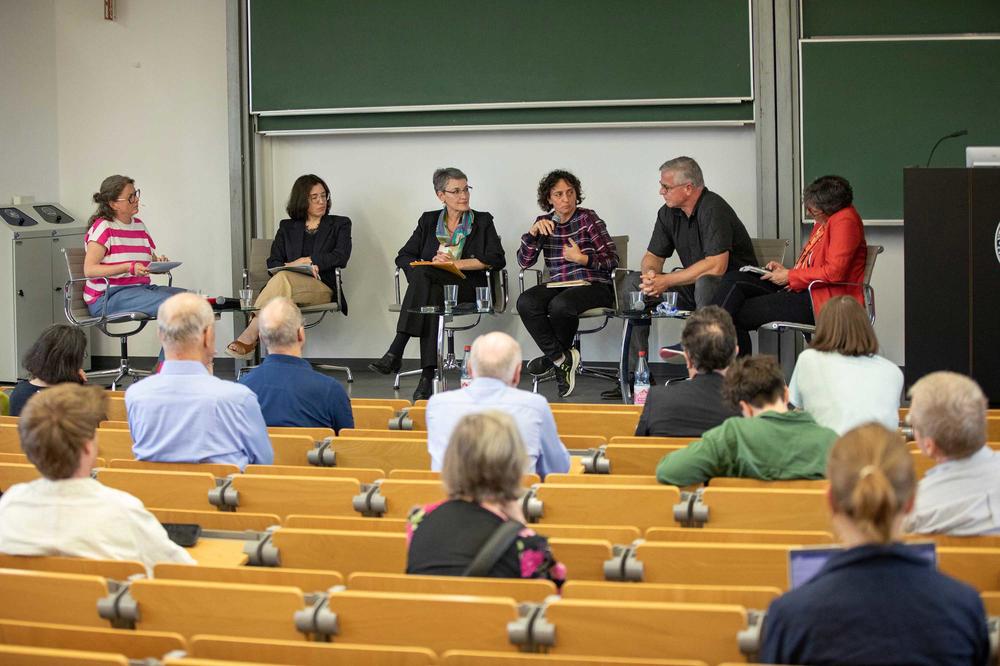Academic Freedom Under Pressure: SCRIPTS Panel on the U.S. Context
(from left to right) Moderator Katja Weber in conversation with Lora Anne Viola, Kathrin Zippel, Rachel Tausendfreund, Mattias Kumm, and Tanja Börzel.
Image Credit: Christian Demarco
News from Jun 20, 2025
As part of this semester’s focus on Academic Freedom, the Excellence Cluster SCRIPTS hosted a panel discussion titled “Brennpunkt USA” on 4 June 2025 at Freie Universität Berlin. The event brought together scholars to examine the intensifying political pressure on U.S. universities under the second Trump administration. Panelists included political scientists Tanja Börzel, Lora Anne Viola, and Kathrin Zippel, legal scholar Mattias Kumm (all affiliated with SCRIPTS), and U.S. policy expert Rachel Tausendfreund. They discussed how American academic institutions are increasingly targeted through the defunding of diversity and inclusion initiatives, legal intimidation, and the presence of immigration enforcement officers on campuses. Tanja Börzel stressed that academic freedom, as a cornerstone of liberal democracy, is under threat from authoritarian populists who view universities as adversaries precisely because they foster critical thinking and pluralism.
Lora Anne Viola, reflecting on her own experiences as a U.S. citizen and professor at the John F. Kennedy Institute, described a growing sense of fear and political repression on American campuses, where even elite institutions like Harvard are no longer shielded from interference. Kathrin Zippel, drawing on two decades of academic work in the U.S., recounted how funding for gender and diversity research has become a target—at times being suddenly frozen or made conditional on political loyalty. Rachel Tausendfreund contextualized these developments within a broader societal divide, noting that conservative critiques of liberal university “elites” resonate with many Americans outside coastal urban centers. Mattias Kumm urged the audience to distinguish between legitimate debate over university practices and the current U.S. government's efforts to undermine the institutional autonomy of academia. He characterized the administration’s actions as a deliberate attempt to degrade political opponents under the guise of reform.
While the conversation focused on the U.S., the panel also addressed potential parallels in Germany. Kumm pointed out that higher education laws in some federal states allow governments to exert influence over academic appointments, posing risks to institutional independence. Börzel added that even in Berlin, political influence over hiring remains legally possible—prompting ongoing dialogue with the Senate to strengthen protections. The discussion underscored the importance of maintaining public trust in science, supporting early-career researchers vulnerable to political shifts, and investing in effective, accessible science communication. The panel closed with a call to actively foster solidarity with scholars around the world who find themselves working in increasingly hostile environments.
Read the full article here.

